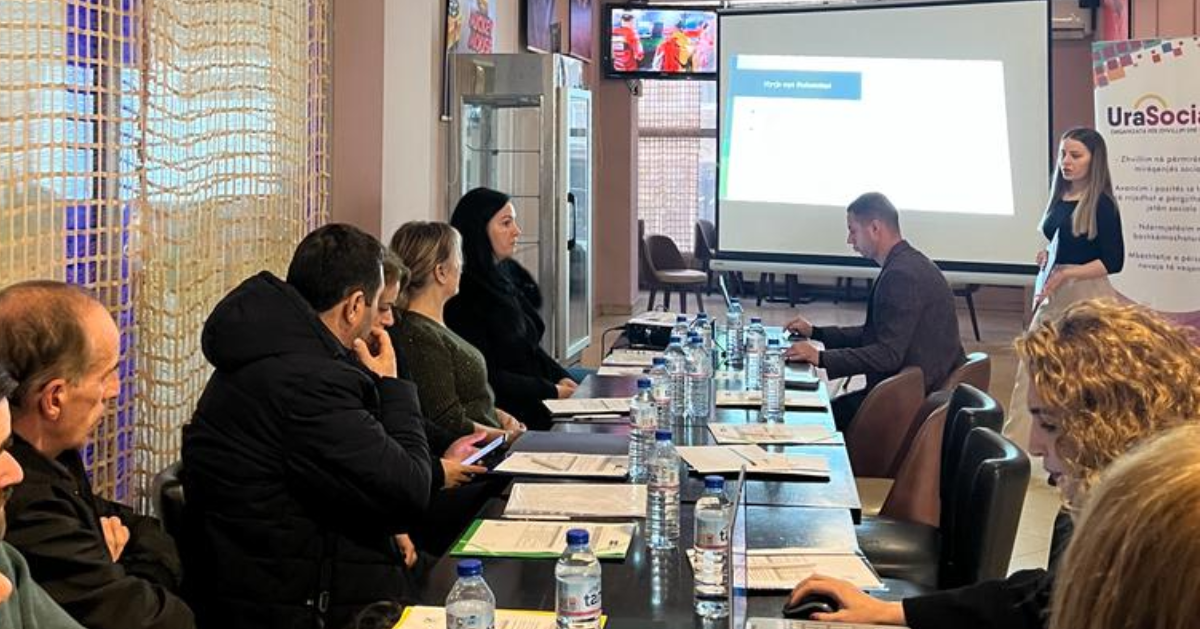On 20 Jan., a representative from the Kosova Women’s Network (KWN) Nicole Farnwsorth, attended the European Union (EU) Task Force on United Nations Security Council Resolution (UNSCR) 1325 on Women, Peace and Security meeting in Brussels. The EU consultation was organized to correspond with a visit by Radhika Coomaraswamy and her team, which is leading the UN Global Study on the Implementation of Security Council Resolution 1325. The Task Force kindly created space for comments by civil society representatives attending the meeting, including KWN. The consultation focused on national and regional 1) priorities and progress relating to the women, peace and security agenda; 2) obstacles, gaps and emerging concerns; and 3) missing data and recommendations for the Global Study. The issues raised by the KWN representative included:
- Women’s Security: there is insufficient attention to the overall wellbeing and security of women in conflict and post-conflict situations, which can contribute to insecurity and conflict. This should be addressed in programming around UNSCR 1325 as a protection, prevention and recovery measure (e.g., better programming on health and economic security).
- Coordination among UN agencies as well as with other actors such as international organizations has been poor. This has involved competition and “turf wars”, which contributes to inefficiency and ineffectiveness in programming. We’d be more effective and efficient with better coordination.
- Justice and reparations for crimes committed against women, particularly sexual violence, remain largely unaddressed. In Kosovo, this is due to failures by the UN and their loss of evidence, which makes justice difficult 15 years later. Women still demand justice and reparations.
- Women’s participation in peace talks (e.g., between Kosovo and Serbia) does not necessarily mean representation of issues important to women. Beyond women diplomats involved in peace processes, women in the country must also be consulted and the issues they raise should be better addressed in negotiations (e.g., in the case of Kosovo issues raised by women such as missing persons and justice for gender-based violence perpetrated during the war have not been adequately addressed).
- An adequate budget must be allocated for work relating to the implementation of UNSCR 1325.
- The indicators used by the EU and UN respectively should have clearer targets and timeframes for better monitoring implementation.
Achievements and best practices mentioned by the 12 EU Member States present included: progress in women’s and men’s more equal participation in civilian and military operations; training for them; gender coaching for high level/central authorities; the international summit on sexual violence and
International Protocol on the documentation and Investigation of Sexual Violence; initial work towards Women’s Economic Empowerment; and “stories from the field” from peacekeepers regarding how gender training helped them better interact with and protect women in conflict situations.
Challenges noted included ensuring adequate funding for implementing National Action Plans (NAPs); measuring long-term impact; insufficiently clear indicators (without targets and timeframes); bringing women into peace processes and negotiations; considering and addressing via programming the diversity among women (intersectionality); increasing women’s participation in peace operations; addressing impunity; ensuring relief and redress for persons who suffered sexual violence; insufficient support from high level officials, which is necessary for implementation; documenting the impact of women’s involvement in peace processes, as few examples exist (e.g., only in the Philippines and Colombia offer examples of women’s significant involvement); and that EU Member States are not solely responsible for achieving results because this depends also on others.
Among the recommendations made to the UN were: UNSCR 1325 implementation should be adequately budgeted for by the UN, and gender should be mainstreamed in all budgeting; and conflict analysis and power analysis, including in early warning, are important to ensure women are part of peace processes and their design from the beginning. Some of the recommendations for the EU included:
- The EU should adopt the International Protocol on the documentation and Investigation of Sexual Violence in conflict.
- Male mediators should receive more training on gender and inclusion.
- Train and better involve the media considering their important role in reporting on peace and security issues. Use modern technology to raise awareness about UNSCR 1325.
- Countries need to consult more with women in conflict regions when creating their NAPs.
- Attention needs to be paid to men and masculinities.
Moving forward, several participants noted the usefulness in linking work around UNSCR 1325 with other similarly aimed agendas (e.g.,
Beijing +20, the
post-2015 development agenda, and the forthcoming new EU Gender Action Plan). While there is interest in linking the various indicators related to these agendas towards efficient reporting, emphasis was placed on not diluting the original intention and purpose of UNSCR 1325. While important, gender mainstreaming alone was considered insufficient; specific actions towards furthering gender equality are necessary as well.
The UN High Level review, taking place in 2015, will “assess progress at the global, regional and national levels in implementing UNSCR 1325”. KWN Executive Director Igballe Rogova is a member of the High-level Advisory Group for the study. The methodology will involve consultations, including with diverse stakeholders in conflict-affected areas; commissioned studies on issues of interest; input from UN states; and a survey of civil society by the Global Network of Women Peace-builders. The report will not involve “naming and shaming”, but rather best practices. While the authors will discuss areas in need of improvement, they intend for the report to be forward looking. More information about the Study is available
here.






